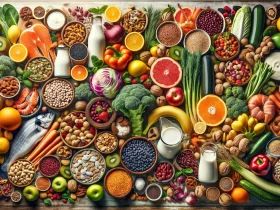Introduction:
Embarking on a weight loss journey is often about understanding the balance of calories consumed versus calories burned. At its core, weight loss is a mathematical equation, but it’s also an art that requires dedication, understanding, and a holistic approach to overall well-being.
The Caloric Equation:
Weight loss is fundamentally a numbers game. By consuming fewer calories than what you burn, you set the stage for shedding those extra pounds. To put it in perspective, a pound of body fat equates to approximately 3,500 calories. So, if your goal is to lose 2 pounds in a week, you’d need to create a deficit of 7,000 calories, which translates to consuming 1,000 fewer calories daily.
However, the equation becomes more favorable when you incorporate exercise. By combining a reduced caloric intake with a workout that burns, say, 250 calories daily, you can still achieve your 2-pound weekly weight loss goal while consuming 700 fewer calories each day.
The Complexity of Weight Loss:
While the math may sound straightforward, the journey to weight loss is layered with complexities. It’s essential to consult with a healthcare professional before making significant alterations to your diet or exercise regimen.
Mapping Your Path to Wellness:
- Crafting a Tailored Plan: Collaborate with your doctor to determine your daily caloric needs, factoring in your weight, age, height, and activity level. Remember to consider any health conditions or physical constraints.
- Monitoring Your Journey: As you navigate your low-calorie diet, diligently document your food intake. Utilize mobile apps or traditional pen and paper to keep track of your daily caloric consumption, water intake, and physical activity. Consistency is key.
- Optimizing Caloric Intake: Embracing a low-calorie diet combined with regular exercise offers a proven formula for sustainable weight loss. But it’s not just about counting calories; it’s about making every calorie count. Prioritize nutrient-dense foods over empty-calorie junk foods.
Maximizing Your Caloric Bang for the Buck:
- Prioritize Protein: Incorporate protein-rich foods in every meal. Protein not only satiates hunger but also boosts metabolism and reduces appetite. Opt for lean meats, eggs, dairy, fish, nuts, and legumes.
- Hydrate Wisely: Quench your thirst with water and avoid calorie-laden beverages like sodas, fruit juices, and alcoholic drinks.
- Minimize Empty Calories: While occasional indulgences are okay, frequent consumption of junk foods can derail your weight loss goals. These foods offer little nutritional value and don’t keep you full for long.
- Carb Consciousness: Understand the difference between simple and complex carbs. Embrace complex carbs like vegetables, whole grains, and potatoes, while limiting refined carbs found in white bread, processed foods, and sugary snacks.
Mindful Eating and Portion Control:
In today’s world, oversized food portions are the norm, especially in restaurants. However, you can still dine out while being calorie-conscious. Consider sharing a meal or taking half of it home for later. Remember, larger portions mean more calories.
Considerations and Precautions:
While the allure of rapid weight loss might tempt you to drastically cut calories, such extreme measures can be detrimental. Your body requires adequate nutrition to function optimally. Studies indicate that individuals who lose weight too swiftly tend to regain it. As a general guideline, women should consume no fewer than 1,200 calories daily, while men should aim for at least 1,800.
Engaging with Your Healthcare Provider:
Engage in a dialogue with your doctor about the suitability of a low-calorie diet for your unique circumstances. Discuss potential foods to embrace or avoid, the role of exercise, and any beneficial supplements or medications.
Conclusion:
A low-calorie diet, when approached mindfully and holistically, can pave the way for sustainable weight loss and improved overall health. Remember, it’s not just about the numbers but about nourishing your body and soul.














Leave a Reply